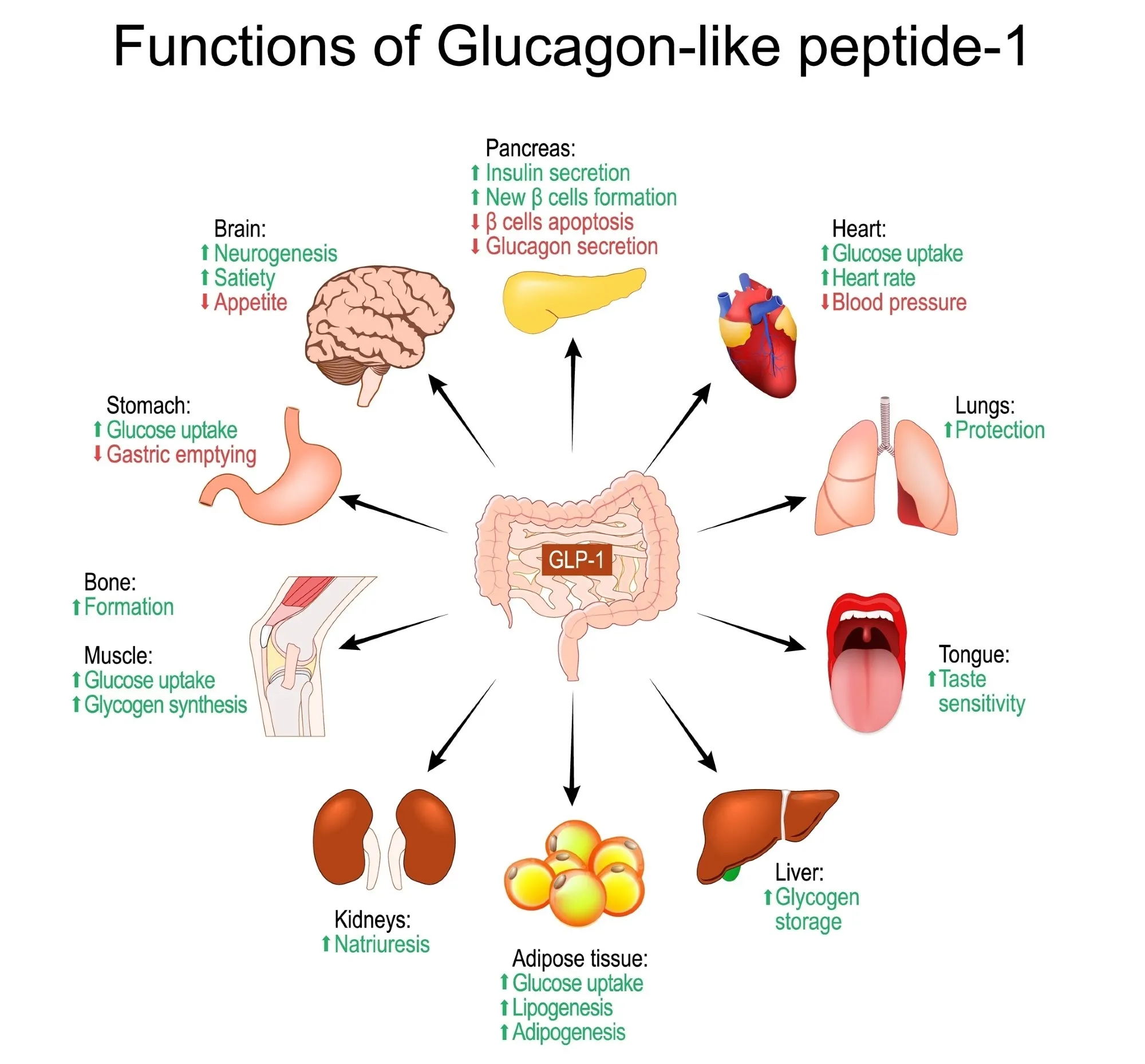GLP-1 Receptor Agonists and Their Role in Combating Alcohol Dependence

Exploring the Role of GLP-1 Receptor Agonists
GLP-1 receptor agonists, originally developed for managing obesity and diabetes through their effects on glycated hemoglobin levels, are now being studied for their application in substance use disorders. These treatments show potential in shifting brain chemistry that correlates with addiction.
Understanding Alcohol Dependence and Addiction
Substance use disorders, including alcohol dependence, manifest severe consequences on public health. The connection between addiction and brain function makes understanding these impacts crucial.
Research Findings and Implications
- Studies indicate a relationship between GLP-1 receptor activity and reduced addiction-related behaviors.
- Mixed findings signal a need for more rigorous trials to establish efficacy.
Overall, while GLP-1 receptor agonists present a promising avenue, the variability in results necessitates further investigation to clarify their role in treating substance use disorders.
Impacts on Public Health
The rise in substance use disorders leads to increased mortality rates. Addressing these issues with new therapeutic strategies such as GLP-1 receptor agonists could reshape treatment paradigms.
Disclaimer: The information provided on this site is for informational purposes only and is not intended as medical advice. We are not responsible for any actions taken based on the content of this site. Always consult a qualified healthcare provider for medical advice, diagnosis, and treatment. We source our news from reputable sources and provide links to the original articles. We do not endorse or assume responsibility for the accuracy of the information contained in external sources.
This article was prepared using information from open sources in accordance with the principles of Ethical Policy. The editorial team is not responsible for absolute accuracy, as it relies on data from the sources referenced.